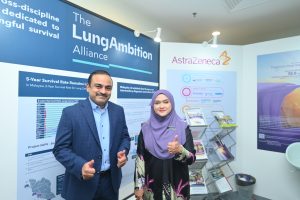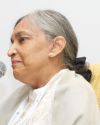WORDS LIM TECK CHOON
Sanofi Malaysia announced this month that Nexviazyme® (avalglucosidase alfa), a new enzyme replacement therapy (ERT), has been approved in Malaysia for the treatment of Pompe disease, a rare and progressive genetic disorder that is often fatal if left untreated.
A QUICK PRIMER ON POMPE DISEASE
- It is caused by a deficiency in acid glucosidase (GAA).
- This deficiency causes an accumulation of a substance called lysosomal glycogen in the body’s tissues. This primarily affects the muscles.
- As a result, the affected person will experience symptoms like muscle weakness, breathing difficulties, and heart problems. They may require the use of wheelchairs and respiratory support.
- Pompe disease can affect individuals of all ages, but it is broadly divided into infantile onset Pompe disease (IOPD) and late onset Pompe disease (LOPD).
BENEFITS OF NEXVIAZYME®
- It can improve the lung function and walking distance of people living with Pompe disease.
- There is also evidence that it can also help improve their muscle strength.
- Certain clinical studies indicated that people with infantile onset Pompe disease exhibited improved motor functions, despite showing suboptimal response to previous treatments.
- Other clinical studies found that those with late onset Pompe disease exhibited improved function of their respiratory muscles and increased ability to walk farther.
Nexviazyme® is approved for use in long-term enzyme replacement therapy, delivered via a drip or intravenously every 2 weeks.
Reference: Sanofi Malaysia. (2024, May 15). New ERT Nexviazyme® (avalglucosidase alfa) MAL23086006AZ approved for treatment of Pompe disease [Press release, KKLIU 1420/EXP 2/11/24].












